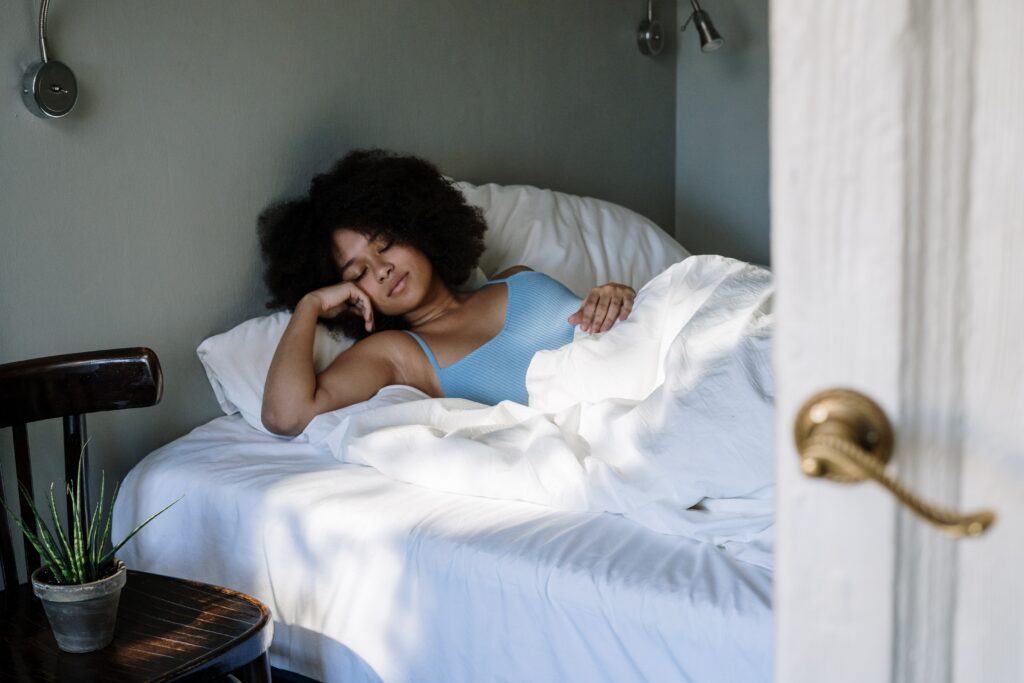Getting a good night’s rest is one of the most important things you can do for your mental health. Not only will it help you feel refreshed and energized, but it can also reduce stress and improve your overall well-being. Today, courtesy of Black Students Mental Health Blog, here are some tips to improve your sleeping habits and boost your mental health in the process.
For a good sleep Invest in Comfortable Bedding
Having clean sheets and comfortable bedding can make all the difference when it comes to getting a good night’s sleep. Make sure to keep up with regular laundry so that you always have fresh sheets, and pick out bedding that is soft, breathable, and comfortable.
You will also want to invest in an adjustable mattress so that you can customize the level of comfort for your particular needs. A bamboo pillow is a worthwhile investment as it is hypoallergenic, but you do need to wash it properly to take advantage of its antimicrobial properties.
Do Breathing Exercises Before going sleep
Taking a few minutes before bed to practice deep breathing exercises can help you create an oasis of calm in your home, as well as relax your body and mind so that you’re more primed for sleep. Focus on each inhale and exhale as you take slow breaths, or focus on counting each breath up to 10 before starting over again. This type of deep breathing will help clear your mind of worries or anxieties that may be keeping you from falling asleep peacefully.
Read, Don’t Watch
It’s important to start winding down at least an hour before bedtime, which means limiting activities like watching TV, even if it’s just for background noise. Instead of tuning into a show or movie, read something calming like a book or magazine article instead. Reading helps calm both the body and mind, making it easier for you to drift off into sleep without any distractions from the television screen.
Relax With Aromatherapy
Aromatherapy has been used for centuries as an aid for relaxation. Certain essential oils like lavender have calming properties that can settle both the body and mind in preparation for getting some shut-eye. Use aromatherapy by diffusing oils in an essential oil diffuser or by applying it directly onto a tissue, either placed near your pillow or inhaled directly. Remember not to apply too much oil to your skin since this could cause irritation.
Wear Comfortable Sleep Clothes
PJs should be loose enough so they don’t constrict movement yet still stay in place while sleeping — no one wants their PJ bottoms slipping off in the middle of the night. It’s also important to make sure PJs are made from light materials like cotton so they don’t trap heat. Otherwise, sweating may occur during the night, which could disrupt sleep cycles. Overall, choose pajamas that you look forward to putting on each night.
Set Up a Sleep Schedule That Works for You
If you work from home or remotely, chances are you don’t have designated hours where you clock out at the end of the day, which makes having defined sleeping habits even more important. Set up a consistent schedule: what time you get up, what time you start work, and what time you end your day. Also, because you’re likely spending most of your day in front of screens, limit your screen time once the day is over.
Improving your sleeping habits is key when it comes to boosting mental health. From investing in comfortable sheets and sleep clothes to practicing deep breathing before going to bed, avoiding watching TV before sleep to sticking to a schedule, there are many ways we can improve our sleeping patterns in order to get better quality sleep nightly. Adjusting your sleep habits will ultimately improve your mental well-being, too.
Jackie Cortez works with The Prevention Coalition to find resources on every aspect of addiction, including recovery. She believes that every child and young adult deserves the opportunity to make a fully educated decision on drug use. The Prevention Coalition was founded by a group of retired school counselors and therapists to provide an accessible drug use and abuse prevention resource for parents, teachers, counselors and other concerned adults.

